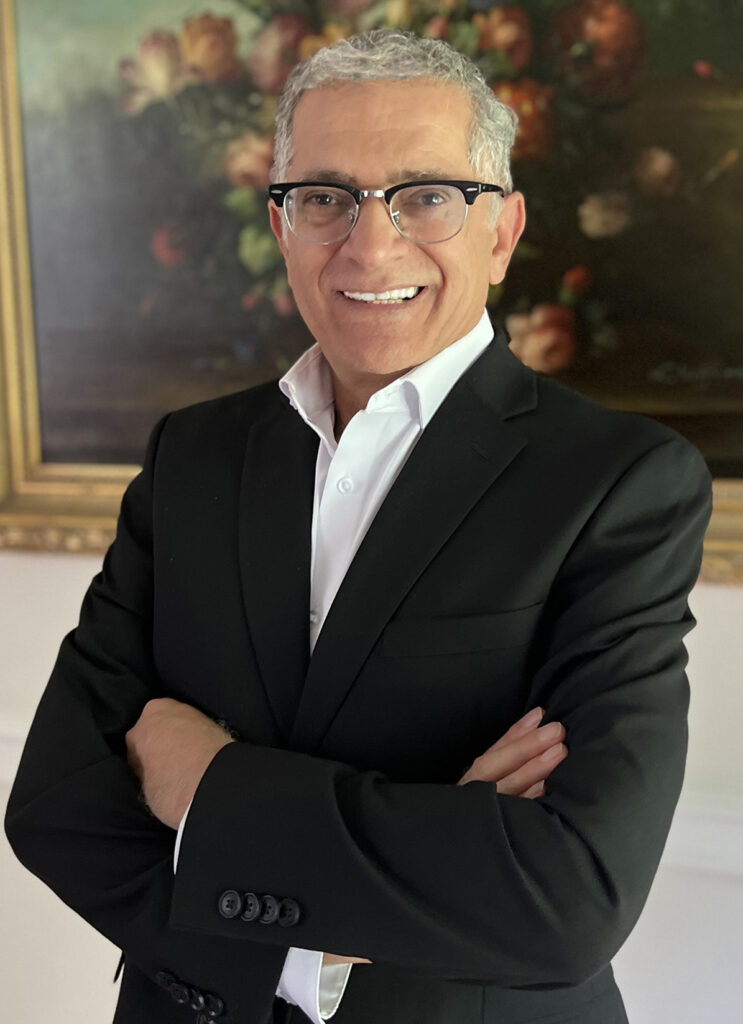Kamal Sarabandi receives Ellis Island Medal of Honor

Radar technology trailblazer and University of Michigan engineering professor Kamal Sarabandi is among this year’s recipients of the Ellis Island Medal of Honor.
The prestigious award recognizes individuals for excellence and service to the country in professional, cultural and civic roles. Those honored embody “the spirit of inclusivity and resilience that has defined America throughout its history,” according to the nonprofit Ellis Island Honors Society that presents the awards annually.
Recipients include leaders from across society—politics and civil rights, entertainment and the arts, business, military, science, technology and medicine. Past honorees include six U.S. presidents, CEOs of Fortune 500 companies, Nobel laureates, and cultural figures.
Sarabandi, described in award materials as “a legendary figure in the field of electrical engineering,” is a member of the National Academy of Engineering and a fellow in the American Association for the Advancement of Science. He is the Fawwaz T. Ulaby Distinguished University Professor and Rufus S. Teesdale Professor of Engineering in the Department of Electrical Engineering and Computer Science. He is also an alumnus.
“Professor Sarabandi’s receipt of the Ellis Island Medal of Honor is a testament to a life spent innovating in the field of electromagnetic research, and the profound impact of his work on society at large,” said Laurie McCauley, U-M provost and executive vice president for academic affairs.
This medal, to me, is a tangible manifestation of the American Dream—the idea that with hard work, determination and opportunity, anything is possible.
Kamal Sarabandi
“This award honors his individual achievements; it also underscores the vital role of immigrants in enriching our academic community and advancing the frontiers of science and engineering. We are immensely proud of Professor Sarabandi’s accomplishments and are inspired by his unwavering dedication to pushing the boundaries of knowledge and technology for the betterment of humanity.”
Sarabandi’s philosophy has always been that research should matter outside of scientific journals. He turned the radar discoveries he made during his PhD studies into systems that can monitor key climate change indicators from space, specifically soil moisture and the carbon stored in plants. From there, he went on to lead a $20-million center, funded by the Army Research Lab, that developed a suite of robots with compact, lightweight radar systems that collaborate to see through rain, smoke and even walls.
More recently, his team has turned to developing radar for autonomous vehicles, both drones and cars, which need to detect obstacles in all kinds of weather. Radar systems, which rely on radio waves, have the potential to be less expensive than laser-based lidar for this purpose.
“I feel deeply honored and humbled to receive this medal representing not only my personal achievements but also the rich legacy of my heritage and the esteemed reputation of my university. This medal, to me, is a tangible manifestation of the American Dream—the idea that with hard work, determination and opportunity, anything is possible,” Sarabandi said.
“I am also reminded of the countless individuals who have contributed to my journey, from my parents and close family members, to the mentors and colleagues whose support and guidance have shaped my path. I am inspired to continue striving for excellence and to uphold the values of integrity, perseverance and service that the medal represents.”
Sarabandi earned a master’s in applied mathematics and Ph.D. in electrical engineering from U-M in 1989. When he entered the job market, his reputation overrode the resistance universities often have to hiring their own graduates as faculty.
“Kamal Sarabandi is a superstar, and I could tell he was destined to make major advances in the field of electromagnetics from the very first time I met him,” said Fawwaz Ulaby, professor emeritus of electrical and computer engineering, who hired Sarabandi.
“Getting elected to the National Academy of Engineering a few years ago and getting selected to receive the Ellis Island award are perfect testimonials to his amazing contributions.”
Throughout his tenure, Sarabandi reassessed his research direction every five years, identifying different fields in which he might be able to apply his capabilities in radar and remote sensing. This approach enabled him to contribute in multiple areas and also start companies to commercialize technologies for harnessing radio-frequency systems. One of these, EMAG Technologies, is currently operating out of Ann Arbor.
“I am delighted that Professor Kamal Sarabandi has been selected for this honor. As a highly accomplished Iranian-American scientist and educator, he personifies the spirit of this award,” said Nader Engheta, who nominated Sarabandi and is the H. Nedwill Ramsey Professor and a professor of electrical and systems engineering at the University of Pennsylvania. Enghata was a medal recipient in 2019.

Sarabandi, who became a U.S. citizen on July 4, 1998, will be awarded the medal along with roughly 80 other honorees on May 18 on Ellis Island—the historical immigration station for people arriving in New York City and now home of the National Museum of Immigration.
The medal has been recognized by both the U.S. House of Representatives and Senate as “one of our nation’s most prestigious awards” and its honorees are read annually into the Congressional Record.